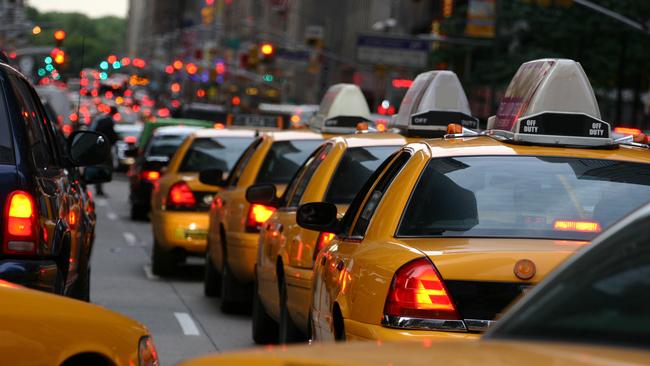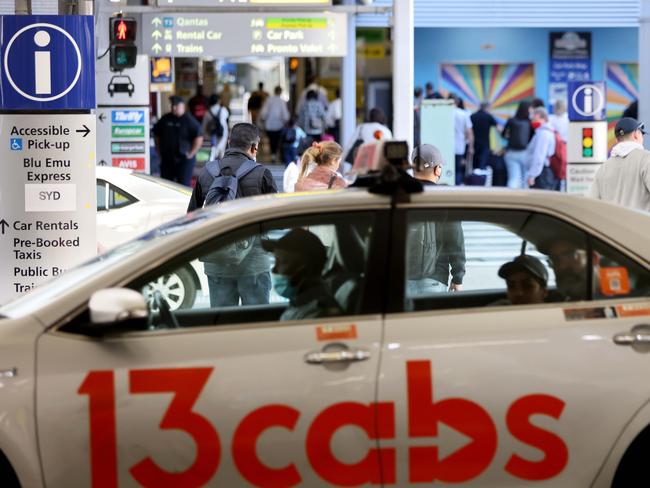Want to lower your Alzheimer’s risk? Taxi drivers offer a clue
A new study finds that cab and ambulance drivers have low rates of death from Alzheimer’s.

Here’s one strategy that might preserve your brain: ditch Google Maps and rely on your own sense of direction.
A new study found that US taxi and ambulance drivers had the lowest percentage of deaths attributed to Alzheimer’s disease among more than 400 occupations. The drivers mostly worked before GPS navigation systems were widely used.
The researchers hypothesise that taxi and ambulance drivers could have a lower risk of developing Alzheimer’s because they are constantly using navigational and spatial processing, says Dr Anupam Jena, a professor of health at Harvard Medical School and associate physician at Massachusetts General Hospital and senior author of the study.
Those on-the-fly decisions about how to get from point A to point B when a road is closed or blocked may protect the drivers’ cognitive abilities, the researchers speculate.
“They’re making decisions literally every few seconds about where to go, where to turn,” says Jena. “The way that your brain is used over the course of your career or the course of your life might impact the likelihood that someone develops dementia.”
The research supports other evidence that education and brain stimulation may help to at least delay symptoms of Alzheimer’s. An earlier study concluded that dementia risk was lower among people with cognitively stimulating jobs compared with those whose jobs were more repetitive, according to the 2021 research in the journal BMJ that looked at the occupations of more than 100,000 people across multiple studies.
“It’s probably unlikely that being a taxi driver prevented people from getting Alzheimer’s disease pathology in the brain, but it allowed them to mask some of the symptoms for longer,” says Dr David Wolk, director of the University of Pennsylvania Alzheimer’s Disease Research Centre.

In the latest study, 1.03 per cent of taxi drivers and 0.91 per cent of ambulance drivers died of Alzheimer’s disease, compared with 3.9 per cent of everyone else, according to findings published in December in BMJ. The researchers used Centres for Disease Control and Prevention data from death certificates that list occupation and cause of death from 2020 to 2022.
Taxi and ambulance drivers didn’t have a lower risk of developing other types of dementia, which are often vascular diseases, notes Jena.
A well-known 2000 study found that London cabdrivers had an enlarged part of their hippocampus. That section of the brain plays an important role in many cognitive functions, including spatial and navigational memory. The hippocampus is typically among the first parts of the brain that Alzheimer’s affects, which is why trouble with navigation and remembering directions is often an early symptom, says Wolk.
A later study by the same group of researchers didn’t find an enlarged hippocampus among London bus drivers, however. The scientists believed that’s because the drivers were on preset routes rather than having to navigate on their own. The most recent study on taxi and ambulance drivers similarly found that other transportation jobs — including bus drivers — didn’t have a lower risk of Alzheimer’s.
The December study has some shortcomings. It’s unclear how long the drivers were working that job. It also didn’t look at the underlying biology of Alzheimer’s disease in each case, including biomarkers that could signal a predisposition to it.
While occupation may play a role in Alzheimer’s disease, many other things influence your risk, notes Claire Sexton, the Alzheimer’s Association senior director of scientific programs and outreach. Physical activity levels, chronic health conditions, diet and social stimulation can all make a difference.
“In terms of looking at risk, it’s not just one factor that’s important,” says Sexton. “It’s not just what somebody does for a living.”
That said, even if you don’t want to start driving a cab to try to help your brain later in life, it wouldn’t hurt to take up hobbies that stimulate your brain, such as playing chess or learning a new language.
The Wall Street Journal




To join the conversation, please log in. Don't have an account? Register
Join the conversation, you are commenting as Logout